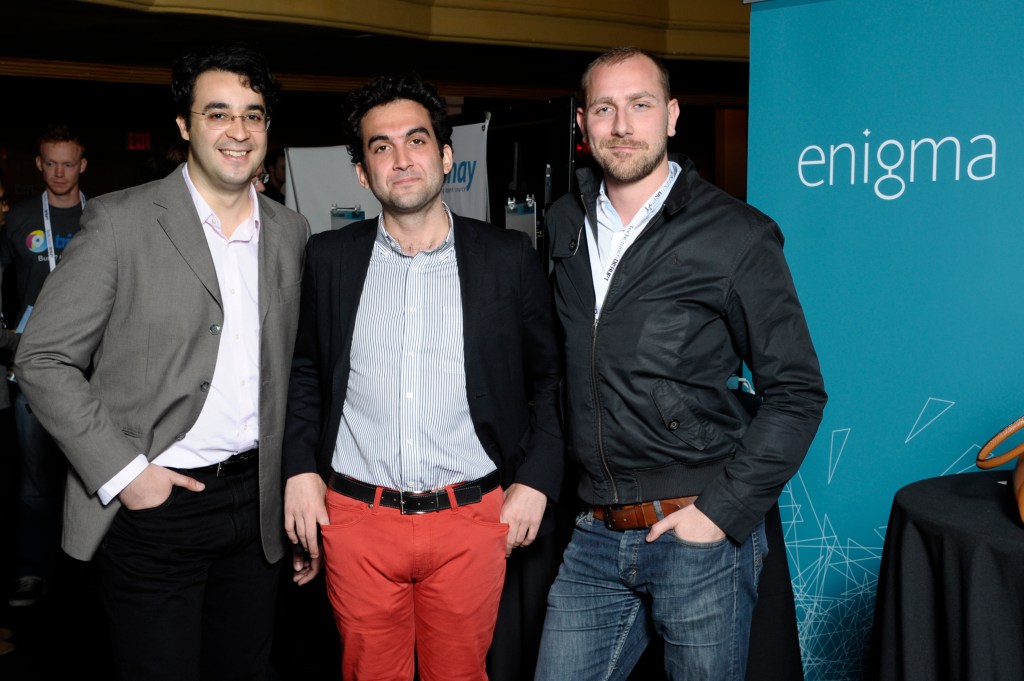
Enigma launched out of beta today to shed light on this hidden world. This “big data” startup focuses on data in the public domain, such as those published by governments, NGOs, and the media. According to founder Marc DaCosta, this data is “totally in the dark” and “scattered across a dizzying array of data silos.” Enigma is building infrastructure to connect all of it together and make it searchable and accessible through a web platform and API.
[aditude-amp id="flyingcarpet" targeting='{"env":"staging","page_type":"article","post_id":728989,"post_type":"story","post_chan":"none","tags":null,"ai":false,"category":"none","all_categories":"big-data,business,entrepreneur,","session":"A"}']“Currently, the world of public data is much like the world that existed on the Internet before search engines became available in the 1990s,” said DaCosta. “Because there is no infrastructure to search and discover public data, huge sources of real important insight and knowledge about how companies, people, and places interact in the world is hidden from view. By surfacing this data in a usable and intuitive way, Enigma empowers a factual, data-driven view of the world that currently is not possible.”
The company describes itself as “Google for public data.” Using a combination of automated web crawlers and directly reaching out to government agencies, Engima’s database contains billions of public records across more than 100,000 datasets. Pulling them all together breaks down the barriers that exist between various local, state, federal, and institutional search portals. On top of this information is an “entity graph” which searches through the data to discover relevant results. Furthermore, once the information is broken out of the silos, users can filter, reshape, and connect various datasets to find correlations.
AI Weekly
The must-read newsletter for AI and Big Data industry written by Khari Johnson, Kyle Wiggers, and Seth Colaner.
Included with VentureBeat Insider and VentureBeat VIP memberships.
DaCosta said that while there are plenty of notable players in public data, such as Factual, Socrata, Bloomberg, Thomson Reuters, and LexisNexis, Enigma is distinguished by its “holistic approach” to data acquisition and interface which supports organic discovery of data. He was working on an interactive cartography project funded by Intel and grew frustrated with how difficult it was to easily access and use public data. His former classmate at Columbia University Hicham Oudghiri was working as a currency trader in New York and felt the same pain point. So the two founded Enigma in 2011 to map the “huge terra incognito” that is public data.
The technology has a wide range of applications, including professional services, finance, news media, big data, and academia. Engima has formed strategic partnerships in each of these verticals with Deloitte, Gerson Lehrman Group, The New York Times, S&P Capital IQ, and Harvard Business School, respectively.
For example, someone looking for a correlation between student loans and unemployment could connect Sallie Mae default data with Bureau of Labor statistics on unemployment. Or a journalist could dive into whether the plant that exploded in Texas had any safety or environmental violations with the EPA or OSHA.
Enigma launched in beta in February 2013. Today, the company is also announcing a strategic investment from The New York Times which brings its total seed funding to $1.45 million, with investment from Crosslink Capital, Tripplepoint Capital, Brent Hurley, and Strauss Zelnick. The company is headquartered in New York City and has 13 employees.
VentureBeat's mission is to be a digital town square for technical decision-makers to gain knowledge about transformative enterprise technology and transact. Learn More
